Related Research Articles

The Crimean War was fought from October 1853 to February 1856 between Russia and an ultimately victorious alliance of the Ottoman Empire, France, the United Kingdom and Sardinia-Piedmont.

General Sir William Fenwick Williams, 1st Baronet was a Nova Scotian military leader for the British during the Victorian era.

Samuel Langhorne Clemens, known by the pen name Mark Twain, was an American writer, humorist, entrepreneur, publisher, and lecturer. He was praised as the "greatest humorist the United States has produced", and William Faulkner called him "the father of American literature". His novels include The Adventures of Tom Sawyer (1876) and its sequel, Adventures of Huckleberry Finn (1884), the latter of which has often been called the "Great American Novel". Twain also wrote A Connecticut Yankee in King Arthur's Court (1889) and Pudd'nhead Wilson (1894), and co-wrote The Gilded Age: A Tale of Today (1873) with Charles Dudley Warner.
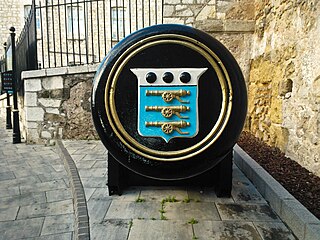
The Board of Ordnance was a British government body. Established in the Tudor period, it had its headquarters in the Tower of London. Its primary responsibilities were 'to act as custodian of the lands, depots and forts required for the defence of the realm and its overseas possessions, and as the supplier of munitions and equipment to both the Army and the Navy'. The Board also maintained and directed the Artillery and Engineer corps, which it founded in the 18th century. By the 19th century, the Board of Ordnance was second in size only to HM Treasury among government departments. The Board lasted until 1855, at which point it was disbanded.
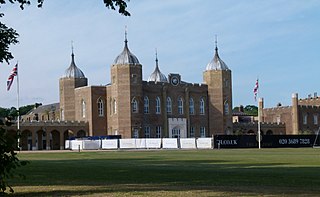
The Royal Military Academy (RMA) at Woolwich, in south-east London, was a British Army military academy for the training of commissioned officers of the Royal Artillery and Royal Engineers. It later also trained officers of the Royal Corps of Signals and other technical corps. RMA Woolwich was commonly known as "The Shop" because its first building was a converted workshop of the Woolwich Arsenal.

"The Celebrated Jumping Frog of Calaveras County" is an 1865 short story by Mark Twain. It was his first great success as a writer and brought him national attention. The story has also been published as "Jim Smiley and His Jumping Frog" and "The Notorious Jumping Frog of Calaveras County". In it, the narrator retells a story he heard from a bartender, Simon Wheeler, at the Angels Hotel in Angels Camp, California, about the gambler Jim Smiley. The narrator describes him: "If he even seen a straddle bug start to go anywheres, he would bet you how long it would take him to get to wherever he going to, and if you took him up, he would foller that straddle bug to Mexico but what he would find out where he was bound for and how long he was on the road."
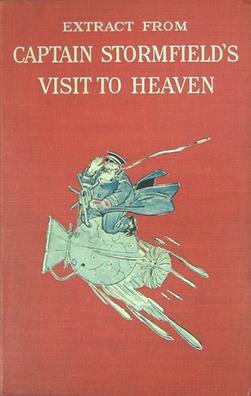
"Captain Stormfield's Visit to Heaven" is a short story written by American writer Mark Twain. It first appeared in print in Harper's Magazine in December 1907 and January 1908, and was published in book form with some revisions in 1909. This was the last story published by Twain during his life.

The siege of Sevastopol lasted from October 1854 until September 1855, during the Crimean War. The allies landed at Eupatoria on 14 September 1854, intending to make a triumphal march to Sevastopol, the capital of the Crimea, with 50,000 men. Major battles along the way were Alma, Balaklava, Inkerman, Tchernaya, Redan, and, finally, Malakoff. During the siege, the allied navy undertook six bombardments of the capital, on 17 October 1854; and on 9 April, 6 June, 17 June, 17 August, and 5 September 1855.

"The Charge of the Light Brigade" is an 1854 narrative poem by Alfred, Lord Tennyson about the Charge of the Light Brigade at the Battle of Balaclava during the Crimean War. He wrote the original version on 2 December 1854, and it was published on 9 December 1854 in The Examiner. He was the Poet Laureate of the United Kingdom at the time. The poem was subsequently revised and expanded for inclusion in Maud and Other Poems (1855).
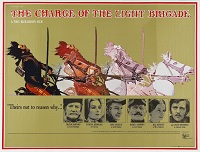
The Charge of the Light Brigade is a 1968 British DeLuxe Color satirical war film made by Woodfall Film Productions and distributed by United Artists, depicting parts of the Crimean War and the eponymous charge. It was directed by Tony Richardson and produced by Neil Hartley. Its animated credits and linking passages were created by Richard Williams, drawing on the satirical use of Victorian-era jingoistic images. This film features Richardson's daughters Natasha and Joely in their debuts.

"The Luck of Roaring Camp" is a short story by American author Bret Harte. It was first published in the August 1868 issue of the Overland Monthly and helped push Harte to international prominence.

Field Marshal Sir Richard James Dacres, was a British Army officer during the nineteenth century. Born into a substantial naval dynasty, he would achieve similar status in the military, commanding three troops of Royal Horse Artillery at the Battles of Alma in September 1854, Balaclava in October 1854 and Inkerman in November 1854, and throughout the Siege of Sevastopol during the Crimean War and eventually rising to the rank of field marshal.

HMS Terrible was when designed the largest steam-powered wooden paddle wheel frigate built for the Royal Navy.

The Charge of the Light Brigade was a military action undertaken by British light cavalry against Russian forces during the Battle of Balaclava in the Crimean War, resulting in many casualties to the cavalry. On 25 October 1854, the Light Brigade, led by Lord Cardigan, mounted a frontal assault against a Russian artillery battery which was well prepared with excellent fields of defensive fire. The charge was the result of a misunderstood order from the commander in chief, Lord Raglan, who had intended the Light Brigade to attack a different objective for which light cavalry was better suited, to prevent the Russians from removing captured guns from overrun Turkish positions. The Light Brigade made its charge under withering direct fire and reached its target, scattered some of the gunners but was forced to retreat immediately.
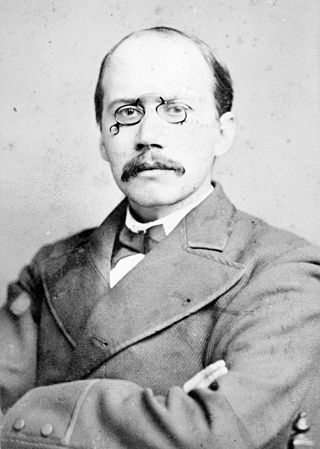
Charles Heber Clark was an American novelist and humorist. Most of his work was written under the pen name Max Adeler. Clark was also known by the pseudonym John Quill.
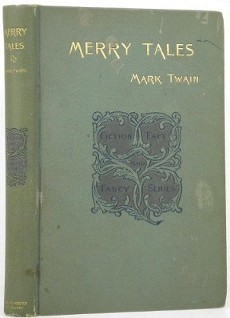
Merry Tales is a short volume with sketches by Mark Twain, published by Charles L. Webster and Company in March 1892.

Samuel Langhorne Clemens , well known by his pen name Mark Twain, was an American author and humorist. Twain is noted for his novels Adventures of Huckleberry Finn (1884), which has been called the "Great American Novel," and The Adventures of Tom Sawyer (1876). He also wrote poetry, short stories, essays, and non-fiction. His big break was "The Celebrated Jumping Frog of Calaveras County" (1867).
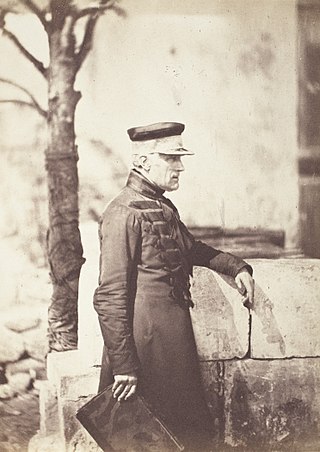
General Sir Henry David JonesDCL was a British Army officer who became Governor of the Royal Military College, Sandhurst.
Henry Hawley Smart (1833–1893) was an English army officer and novelist, who wrote as Capt. Hawley Smart. He was praised for his realistic racing and hunting scenes, and depictions of military incidents.
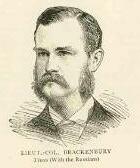
Charles Booth Brackenbury was a British major general and military correspondent, part of a Lincolnshire family whose members fought in nearly all of Britain's wars of the 19th century. He saw service in the Crimean War, and was present at the Battle of Königgrätz (1866) and the Russo-Turkish War (1877–1878). He was one of the most extensive military writers in the mid to late 19th century.
References
- ↑ "Mark Twain on the Crimean War: Introduction". The Victorian Web. 2005-08-15. Retrieved 2007-07-28.